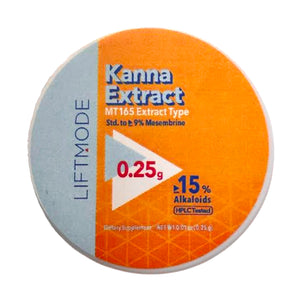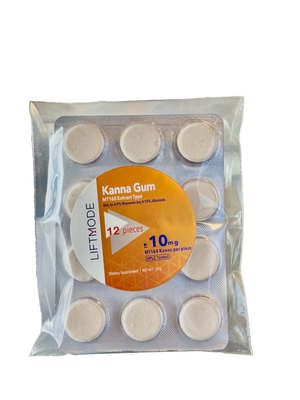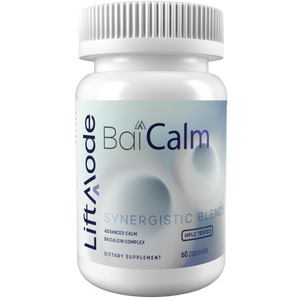TOP VEGAN SUPPLEMENTS: A SUMMARY OF KEY NUTRIENTS VEGANS SHOULD BE AWARE OF
Plant based diets are becoming increasingly popular. A vegan diet is defined as a completely plant based diet in which no food of animal origin is consumed . Instead, a vegan diet places a larger emphasis on the consumption of vegetables, whole grains, legumes, fruit and nuts and seeds.
Today, the benefits of vegan diets are becoming increasingly recognized and are now being widely promoted for the prevention and management of chronic disease of lifestyle
[1][2][3]
It is important to note however, that the restriction of any food group may result in an increased risk of nutritional deficiencies. In a large study, that looked hat dietary intakes of meat eaters, lacto-ovo-vegetarians and vegans, vegans were found to have the highest intakes of vitamin C and magnesium and the lowest intakes of vitamin B-12, vitamin D, calcium, and zinc.
[4] Surprisingly, the prevalence of iron deficiency has been found to be similar across common dietary groups.
[5]
Considering the above evidence, it is evident that vegans may be at an increased risk of a few key nutrients. This article aims to summaries key information about supplements that are important when following a vegan diet.
VITAMIN B12
| Recommended Daily Intake (RDA) |
|
| Male & Females > 18 yrs |
2.4 ug /day |
| Pregnancy & Lactation |
2.6-2.8 ug /day |
Vitamin B12, also known as cobalamin, is a water soluble vitamin that plays an essential role in growth and development, the production of red blood cells and immune function.
[6]
Vitamin B12 is found exclusively in foods of animal origin. Individuals following a vegan diet are therefore at an increased risk for dietary vitamin B12 deficiency. According to a 2014 review on the prevalence of B12 deficiency, vegans who do not ingest vitamin B12 supplements were found to be at especially high risk
[7]
Furthermore, according to the position of the Academy of Nutrition and Dietetics, fermented foods (such as tempeh), nori, spirulina, chlorella algae, and unfortified nutritional yeast cannot be relied upon as adequate or practical sources of B-12.
[8]
Therefore, it is strongly recommended, that all vegans regularly consume a reliable source of B12 from both B-12 fortified foods and B-12 supplements. For pregnant and lactating mothers who follow a vegan diet, a vitamin B12 supplement is especially important.
There are four types of B12 available today, cyanocobalamin, methylcobalamin, adenosylcobalamin and hydroxocobalamin. Cyanocobalamin is most commonly found in fortified foods and supplements because of its stability. The body however first converts cyanocobalamin into methylcobalamin before it can be used.
Due to the low bioavailability of vitamin B12, as a dietary supplement, methylcobalamin and adenosylcobalamin are the preferable forms. The position of the scademy of nutrition and dietetics further states that, as a supplement, higher doses than the RDA of vitamin B12 may be required.
CALCIUM
| Daily Adequate Intake (AI) |
|
| Male & Females > 18 yrs |
1000 mg/day |
| Pregnancy & Lactation |
1300mg//day |
Calcium is a mineral that plays an essential role in maintaining good bone and teeth health. Over 99% of total body calcium is found in our teeth and bones.
[9] Calcium is also important for muscle function, nerve signaling, and heart health.
According to the position of the Academy of Nutrition and Dietetics calcium intakes of vegans varies widely but sometimes fall below recommendations, with the average calcium intake on a vegan diet ranging between 500mg-600mg.
[10]
In a 2014 review comparing the nutritional quality of vegan, vegetarian and omnivorous diets, the vegan diet was found to not only have the lowest total energy intake but calcium intake was found to be the lowest and below national dietary recommendations
[11]
Luckily, there are many dietary sources of calcium readily available today. These include fortified plant- based milk alternatives, tofu and green leafy vegetables. T
The calcium in some vegetables is however not always absorbed well due to the presence of oxalates (a naturally occurring compound found in food that binds to calcium). High-oxalate vegetables include spinach, beet greens, and swiss chard.
Vegans should therefore try and regularly consume low oxalate foods such as kale, turnip greens, bok choy and white beans to meet their daily calcium needs. Furthermore, given that the average calcium intake from diet alone does not meet recommendations, a daily calcium supplement may also be necessary on a vegan diet.
There are two main forms of calcium in supplements, calcium carbonate and calcium citrate. Calcium citrate is the preferred supplement form as it is better absorbed and does not need to be taken with food
[12] Calcium carbonate on the other hand, is readily available as a supplement but must be taken with food as it requires stomach acid for its absorption.
It is important to note that exceeding the RDA for calcium may have negative health implications.
[13] For this reason, no more than 2, 500mg of calcium should be consumed daily.
ZINC
| Daily Adequate Intake (AI) |
|
| Females > 18 yrs |
8 mg/day |
| Males > 18 yrs |
11 mg/day |
| Pregnancy & Lactation |
12 mg//day |
Zinc is an important trace element that is known mostly for its role in immune function. Zinc is also essential for normal growth and development during pregnancy, childhood, and adolescence
[14]
A 2013 meta-analysis showed vegans to have only a slightly lower serum zinc level than non-vegetarians
[15]. Given the essential role of zinc in immunity, however, a supplement may be necessary to ensure daily requirements are being met.
There are several types of zinc supplements available today, including zinc gluconate, zinc sulfate, and zinc acetate. Zinc gluconate and zinc citrate are two forms that are best absorbed. An important factor to consider when buying a zinc supplement, is the amount of
elemental zinc in the supplement.
A zinc supplement up to 100% of the recommended intake, is generally considered safe to take to prevent zinc deficiency.
VITAMIN D
| Daily Adequate Intake (AI) |
|
| Males & Females > 18 yrs |
400IU/day |
Evidence suggests that vitamin D deficiency is a concern among both vegans and omnivores.
[16] Vitamin D is however found primarily in animals foods including salmon, sardines, canned tuna and egg yolks which may increase the risk of deficiency in vegans as a vegan diet does not contain any of the listed foods.
Currently, the best dietary sources of vitamin D for vegans include fortified milk alternatives, orange juice and mushrooms.
[17]
According to a large national health and nutrition examination survey (NHANES), average intake levels for males from foods alone ranged from 204 to 288 IU/day and between 144 to 276 IU/day for females
[18], highlighting the potential need for vitamin D supplementation in order to meet requirements.
Vitamin D is a fat soluble vitamin and this is important for two reasons. Firstly, ,fat soluble vitamins are better absorbed in the precence of fat and therefore , vitamin D supplements should be taken with foods that contain fat to increase absorption.
Secondly, fat soluble vitamins are stored in our bodies and therefore, when taken as an oral supplement in high doses, there is a risk of developing toxicity. An oral dose of 400 IU is therefore recommended and should not be exceeded without medical supervision.
OMEGA 3 and DHA
| Daily Adequate Intake (AI) |
|
| Males & females > 18 yrs |
1.1g /day |
| Pregnancy |
1.4g/day |
| Lactation |
1.3g/day |
Omega 3 is an essential fatty that not only exhibits strong anti-inflammatory properties but also plays a very important role in both brain and heart health
[19] . Omega 3 is found mainly in fatty fish and eggs. Good plant sources of omega-3 fatty acids include ground flaxseeds and flaxseed oil, ground chia seeds, walnuts, soy and algae.
Even though omega 3 is found in commonly consumed plant foods, research has shown that vegans tend to have lower blood levels of eicosapentaenoic acid (EPA) and docosahexaenoic acid (DHA) than meat eaters.
[20]
Omega 3, when consumed is converted in our bodies into either EPA or DHA. Therefore, taking a DHA/EPA supplement is preferable over a standard omega 3 supplement.
General healthy eating guidelines recommended including 2–3 serves of fish per week as part of a heart-healthy diet. This provides around 250–500 milligrams (mg) EPA/DHA per day.
Vegans should therefore ideally choose supplements that provide at least 250–500 milligrams (mg) EPA/DHA per day.
IRON
| Daily Adequate Intake (RDI) |
|
| Males > 18 yrs |
8gm/day |
| Females > 18 yrs |
18mg/day |
| Pregnancy |
27mg /day |
| Lactation |
9mg/day |
Iron is found primarily in animals products and it is therefore commonly thought that that vegetarians and vegans are likely to be at a higher risk of iron deficiency when compared to omnivores.
Research , however, suggests that vegetarians who eat a varied and well balanced diet are not at any greater risk of iron deficiency than non-vegetarians.
[21] Furthermore, the Academy of Nutrition and Dietetics and the German Nutrition Society currently do not recognize iron as a major risk factor for vegans
[22]
Iron deficiency is, however, the most common nutritional deficiency in the world that affects mainly young women and children. It is therefore recommended that iron levels and stores are regularly monitored in order to prevent deficiency.
References
[1] Kim, H., Caulfield, L. E., Garcia‐Larsen, V., Steffen, L. M., Coresh, J., & Rebholz, C. M. (2019).
Plant‐Based Diets Are Associated With a Lower Risk of Incident Cardiovascular Disease, Cardiovascular Disease Mortality, and All‐Cause Mortality in a General Population of Middle‐Aged Adults. Journal of the American Heart Association, 8(16).
[2] Medawar, E., Huhn, S., Villringer, A., & Veronica Witte, A. (2019).
The effects of plant-based diets on the body and the brain: a systematic review. Translational Psychiatry, 9(1).
[3] McMacken, M., & Shah, S. (2017). A plant-based diet for the prevention and treatment of type 2 diabetes.
Journal of geriatric cardiology : JGC,
14(5), 342–354.
[4] Ann Reed Mangels, Bone nutrients for vegetarians, (2014)
The American Journal of Clinical Nutrition, Volume 100, 469S–475S.
[5] Schüpbach, R., Wegmüller, R., Berguerand, C., Bui, M., & Herter-Aeberli, I. (2015).
Micronutrient status and intake in omnivores, vegetarians and vegans in Switzerland. European Journal of Nutrition, 56(1), 283–293.
[6] L. Mahan, J. Raymond (2017)
Krause’s Food and the Nutrition care Process (14
th Ed) St. Louis, Missouri : Elsevier
[7] Pawlak, R., Lester, S. & Babatunde, T.(2014).The prevalence of cobalamin deficiency among vegetarians assessed by serum vitamin B12: a review of literature.
Eur J Clin Nutr 68, 541–548
[8] Eat Right Pro. (2016). Position of the Academy of Nutrition and Dietetics: Vegetarian Diets.
J Acad Nutr Diet; 116:1970-1980.
[9] Institute of Medicine (US) Standing Committee on the Scientific Evaluation of Dietary Reference Intakes. (1997) Dietary Reference Intakes for Calcium, Phosphorus, Magnesium, Vitamin D, and Fluoride. Washington (DC): National Academies Press (US.
[10] Mangels R, et al.,(2011) The dietitian’s guide to vegetarian diets. 3rd ed. Sudbury, MA: Jones & Bartlett Learning.
[11] Clarys, P., Deliens, T., Huybrechts, I., Deriemaeker, P., Vanaelst, B., De Keyzer, W., Hebbelinck, M., & Mullie, P. (2014). Comparison of nutritional quality of the vegan, vegetarian, semi-vegetarian, pesco-vegetarian and omnivorous diet.
Nutrients,
6(3), 1318–1332.
[12] Straub DA. Calcium supplementation in clinical practice: a review of forms, doses, and indications. Nutr Clin Pract. 2007;22:286-96.
[14] L. Mahan, J. Raymond (2017)
Krause’s Food and the Nutrition care Process (14
th Ed) St. Louis, Missouri : Elsevier
[15] Foster, M., Chu, A., Petocz, P., & Samman, S. (2013).
Effect of vegetarian diets on zinc status: a systematic review and meta-analysis of studies in humans. Journal of the Science of Food and Agriculture, 93(10), 2362–2371
[16] Baroni, L., Goggi, S., Battaglino, R., Berveglieri, M., Fasan, I., Filippin, D., Griffith, P., Rizzo, G., Tomasini, C., Tosatti, M. A., & Battino, M. A. (2018). Vegan Nutrition for Mothers and Children: Practical Tools for Healthcare Providers.
Nutrients,
11(1), 5.
[18] Bailey RL, Dodd KW, Goldman JA, Gahche JJ, Dwyer JT, Moshfegh AJ, et al. Estimation of total usual calcium and vitamin D intakes in the United States. J Nutr 2010;140:817-822.
[19] Baroni, L., Goggi, S., Battaglino, R., Berveglieri, M., Fasan, I., Filippin, D., … Battino, M. (2018). Vegan Nutrition for Mothers and Children: Practical Tools for Healthcare Providers
. Nutrients, 11(1), 5.
[20] Harris, W. S. (2014). Achieving optimal n–3 fatty acid status: the vegetarian’s challenge... or not.
The American Journal of Clinical Nutrition, 100(suppl_1), 449S–452S.
[21] Sauders, A et al.,(2012) Iron and Vegetarian Diets.
MJA Ope. 2:11-16
[22] Melina, V., Craig, W. & Levin, S.(2016) Position of the Academy of Nutrition and Dietetics: vegetarian diets.
J. Acad. Nutr. Diet. 116, 1970–1980.




